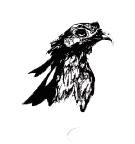Why is vintage dryland bush wine so rare?
This type of farming is extremely complex and results in low yields and high farming risks, combined with the need for ancient knowledge and craftsmanship passed down from generation to generation. Vintage dryland bush wine typically comes from the Swartland, around 40 miles north of Cape Town. There are only a few farms left producing these special grapes, which are the most natural and unirrigated, forcing the roots to dig deep into the soil and absorb more nutrients. This enhances the wine's complexity, terroir expression, and nuanced flavors.
Farming practices include organic and biodynamic methods, such as horse plowing. Almost everything, from pruning to harvesting, is done by hand. No pesticides, herbicides, or synthetic chemicals are used, benefiting both health and taste.
A great deal of ancient craftsmanship and knowledge is required to grow these complex grapes. What makes it even more complicated is that old vines are very sensitive and pose a high risk for farmers if even the smallest incidents occur.
The result is a wine that is as natural as possible, with lower sulfite levels, potentially offering additional health benefits.
How do the grapes look, and why do they taste so different?
Dryland farming inherently results in smaller berries that taste very different. Older vines typically have a higher skin-to-pulp ratio, resulting in wines with higher tannin levels and more concentrated flavors.
Why is the wine-making process so special?
Our winemaker is committed to minimal intervention in the winemaking process. Fermentation at Bloemfontein relies on wild yeasts naturally present in grape skins and in the winery, rather than commercial strains. No sulfites or preservatives are added during fermentation or bottling.
Oak and time play a vital role in our winemaking process. The art of pairing the right oak with the corresponding wine and giving it the time it needs is key to our success.
What is the most expensive African wine?
Bloemfontein's 888 Editions, established in 2009, are believed to be the most expensive African wines. Offered for 888 EUR to selected collectors and aficionados, these red cuvées, typically crafted from the three best red vintage cultivars of the season, are challenging any world-class wines and should not be missed in a global collection.
This type of farming is extremely complex and results in low yields and high farming risks, combined with the need for ancient knowledge and craftsmanship passed down from generation to generation. Vintage dryland bush wine typically comes from the Swartland, around 40 miles north of Cape Town. There are only a few farms left producing these special grapes, which are the most natural and unirrigated, forcing the roots to dig deep into the soil and absorb more nutrients. This enhances the wine's complexity, terroir expression, and nuanced flavors.
Farming practices include organic and biodynamic methods, such as horse plowing. Almost everything, from pruning to harvesting, is done by hand. No pesticides, herbicides, or synthetic chemicals are used, benefiting both health and taste.
A great deal of ancient craftsmanship and knowledge is required to grow these complex grapes. What makes it even more complicated is that old vines are very sensitive and pose a high risk for farmers if even the smallest incidents occur.
The result is a wine that is as natural as possible, with lower sulfite levels, potentially offering additional health benefits.
How do the grapes look, and why do they taste so different?
Dryland farming inherently results in smaller berries that taste very different. Older vines typically have a higher skin-to-pulp ratio, resulting in wines with higher tannin levels and more concentrated flavors.
Why is the wine-making process so special?
Our winemaker is committed to minimal intervention in the winemaking process. Fermentation at Bloemfontein relies on wild yeasts naturally present in grape skins and in the winery, rather than commercial strains. No sulfites or preservatives are added during fermentation or bottling.
Oak and time play a vital role in our winemaking process. The art of pairing the right oak with the corresponding wine and giving it the time it needs is key to our success.
What is the most expensive African wine?
Bloemfontein's 888 Editions, established in 2009, are believed to be the most expensive African wines. Offered for 888 EUR to selected collectors and aficionados, these red cuvées, typically crafted from the three best red vintage cultivars of the season, are challenging any world-class wines and should not be missed in a global collection.
THE SECRET OF BLOEMFONTEIN

